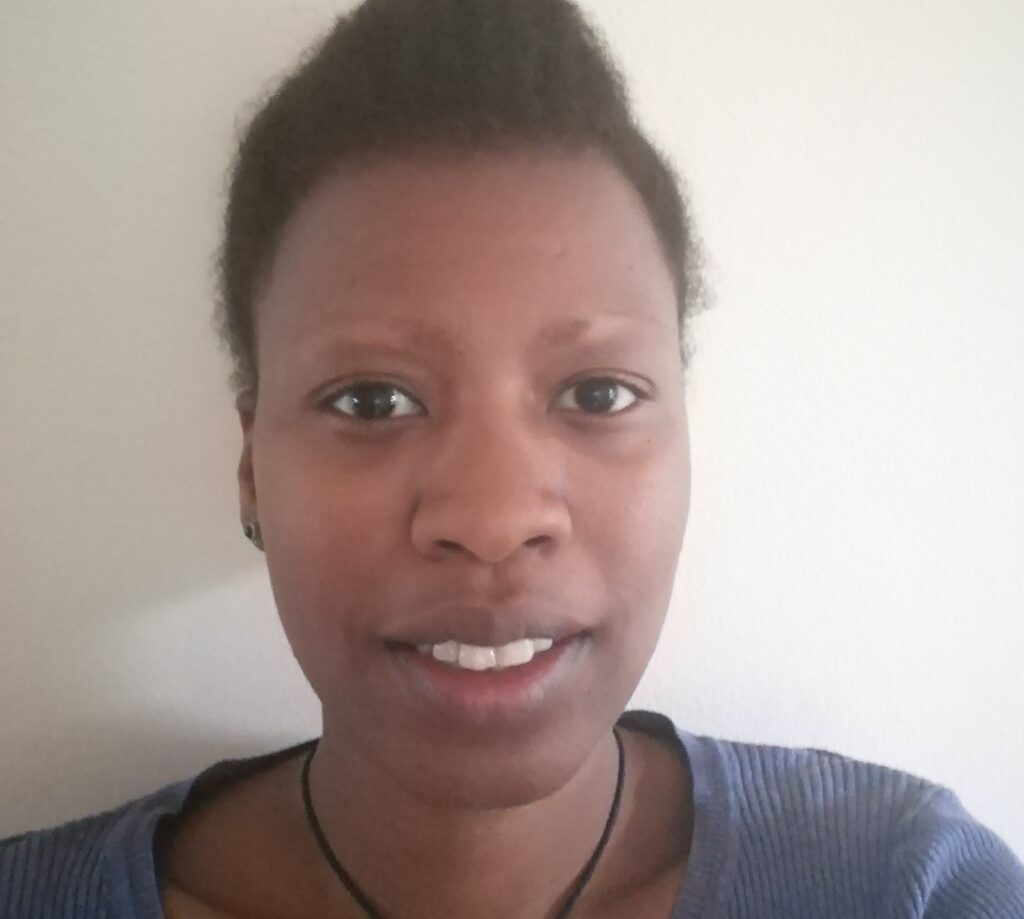Written by Dr Avril Gabriel
Our bodies are our physical representation in the world. With an increasingly aesthetic-focused society, the bodies we are born into can prove helpful, or be a hindrance. As black people, due to experiences of racism, we often have difficult relationships with our bodies. Aware of the unacceptability it presents in the minds of some of society, we may have felt betrayed by our skin. bodies at multiple times throughout our lifetime. Being ostracised or treated differently because of your appearance can leave you with the experience that your body loudly pronounces you’re the outsider, who does not fit in. We can feel unsettled/ unsafe in our own skin. How do we reconcile this, accepting and loving our bodies despite the messages we are fed?
At university the dominant population is white, non-white bodies can become highly visible, or be made to feel invisible. For black students this creates a new sense of confusion, or re-experiencing old hurts (from previous white settings). White bodies, by their very presence may make us feel unsafe and we may sense that our black bodies make them feel unsafe/ uncomfortable. As a student, there are social difficulties to contend with: having to interact with classmates with racially biased views and academics too. You may have to study ideas created in colonial times or influenced by such thinking. Academics may undermine your capability or perceive you as having little to contribute. This can lead to self-doubt, feeling inadequate, powerlessness/ hopelessness. As such, adjusting to a university setting can be a minefield as a minority student, before factoring in all the other difficulties any student faces pursuing a university education.
The mistreatment of our bodies
We may try to manage these external and internalised struggles through the mistreatment of our bodies. This can manifest in various ways, as we attempt to soothe ourselves, or avoid distressing thoughts/emotions:
Self-Harm
Self-harm comes in many forms. I use it to mean cutting, burning or marking the skin. People engage in this behaviour for a multitude of reasons. When emotions continuously feel overwhelming people can end up feeling numb, this can be distressing. To counter this, some report having access again to some form of sensation via self-harm, which can provide a sense of relief. People also experience cutting to release of intense emotions. For others it serves as validation of the pain they are in. Cutting allows themselves (and sometimes others) to see a physical manifestation of the pain to understand that it is real. People have spoken of trying to rub/ wash off their skin, or bleach their skin, due to racism experienced, and thus wanting to find some form of escape from the skin/body they were born into. Another form of escape is through thoughts/plans/ attempts of suicide.
Excessive exercise or stagnancy
Excessive exercising may be a way of trying to control or mould the body into what we think society would see as more acceptable. We can use it as a focus, to block out thoughts and keep busy. Deep down you may believe that if you can just reach a target weight or look a certain way you will be accepted into society and all your problems will be over. Excessive exercising can be a symptom of body-dysmorphic disorder or an eating disorder. No movement or a lack of motivation/energy can be a symptom of depression, it could be accompanied by thoughts and feelings that you/your body does not deserve to feel good or be treated well.
Alcohol/Substance misuse
Using drugs, and/or alcohol misuse is another strategy to try to block out or numb difficult thoughts or feelings we might have. If I use drugs, such as cannabis, in the short term it may seem to be helping with feelings of anxiety, however, in the long run it’s known to increase anxious thoughts and feelings. Similarly, whilst alcohol may make us feel more confident in the moment, it disrupts sleep cycles and is a depressant, so we will feel lower in mood after use.
Eating issues
Despite food’s purpose being as a source of fuel for our bodies, we can have a complicated relationship with it. Excessive eating, particularly of food high in fat and sugar, can, over time, lead to issues such as diabetes. Eating habits are often modelled to us through family members and food can have lots of cultural significance and associations. Therefore, our relationship with food can be complex. Sometimes we can look to food as a source of comfort, wanting to immediately feel better, in the way that milk accessed from our mother’s breast would have soothed us as a child. Other times, due to internalised ideas about our bodies not being socially acceptable, wanting to be invisible, or take up less space, we may restrict our food intake. Food control can be used as a form of self-punishment, or, when feeling overwhelmed or powerless, food may feel like the only thing we have control over. Eating disorders are notoriously underdiagnosed in the black population.
Sleep
We can deprive ourselves of sleep by attempting to do too much. Like trying to prove our worth we may exhaust our bodies and deny them enough time to rest and recover. Sometimes due to worries or trauma, we can be afraid of sleep and do anything to keep ourselves awake leading to insomnia. Alternatively, sleep can be used to escape and avoid tasks, situations or feelings that seem too difficult to deal with. We can then end up staying in bed all day and struggle to get up and engage with life.
Caring for our bodies
Excessive exercise or stagnancy
While I understand the above strategies may be all that you have been taught or know, there are others. There are other healthier strategies you could try to develop a more connected and loving relationship with your bodies. Cultivating better connected, relaxed bodies, settles our nervous system, meaning that we feel safer, soothed and less anxious:
- Get moving to your favourite songs, put on your favourite music and have a dance around your room. Get out of your head and allow your body to express what it needs to. Move and be free.
- Instead of just rushing through creaming your body in the morning/night, massage it with cream/oil. Take time to lovingly soothe and care for your body. You might spend longer than usual noting what you appreciate about each part of your body as you go. For example, “thank you hands and arms for allowing me to type up my assignments!”). Or just take a bit more time on parts of your body that may be feeling tight/sore.
- Take a long bath with nice smelling oils or bath products.
- Give yourself a head massage or foot massage. You might also make some time to soak your feet first, before doing this.
- For at least a day a week focus on what you are putting into your body. You might call them “mindful eating days”. Notice what impact the food has on your body, how you feel before and after eating. You might even extend this into a food diary. Do some foods make you feel good straight away, but later on make you feel sluggish? Often certain foods can seem as if they might soothe us and give immediate relief to difficult emotions. However after eating them we do not feel better and sometimes even feel worse, feeling lethargic, heavy, shame or guilt. Instead, can you ensure you add a piece of fruit or veg to your usual diet each day?
- When on a night out can you alternate between alcohol and water/a soft drink, to decrease your alcohol intake?
- Water is hydrating and great for the body. You can only deal with it in flavoured form or in herbal teas just make sure you are getting enough. If you experience regular headaches, or feel low in energy, it may be that you are not drinking enough water!
- Sleep- keep a sleep diary (https://www.sleepfoundation.org/sleep-diary). Try going to bed an hour earlier than usual, consistently for a week, and notice the difference it makes.
- Create a space for yourself that you associate with calm and relaxation. It might be a space in the corner of your room with a plant. Try some crystals that help you feel soothed and grounded. Spend a few minutes a day in this space and notice how your mood changes.
- Go out for a walk and connect with nature.
- Connect with other bodies that make you feel safe. Hug a friend or spend time singing or walking together.
- For many of us as black people, adultification and the internalisation of responsibility happens very early in our lives. Spend time reconnecting with things your body used to do as a child or would have liked to do. Play hopscotch, skip, hula hoop, be as silly and carefree in the activity as possible. You deserve to have fun and experience joy.
There is more support available.
Check out some Support services
Click Here to find support services provided by your university in England and Wales
A great book for more on grounding and creating a better sense of safety in our bodies is: My Grandmother’s Hands: Racialized Trauma and the Mending of Our Bodies and Hearts. By Resmaa Menakem.
There are also useful mindfulness and breathing audios here:
https://www.compassionatemind.co.uk/resource/audio
My name is Dr Avril Gabriel a Chartered Counselling Psychologist. Currently working in private practice, after previously working in university counselling services. I also worked in the NHS for many years. I am interested in helping people feel more connected to their body and to better understand their experiences. If you are interested in making contact, please email me at [email protected].


This is certainly something that we need to share amongst our circles and with the younger generation as the come up
Absolutely, and thanks for the comment
Absolutely loved this post, sometimes we put the focus on the world as our biggest enemies. But at times the pressure we put on ourselves die to these external projections is much more damaging, lets handle ourselves with more care❤️
You succinctly summarised it there, thanks Rea